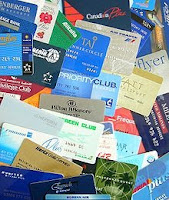While reading a recent report by Deloitte's on the future of
In-Flight Entertainment systems (IFEs) and how they are changing the flying
experience for both passengers and airlines, it struck me how the findings
could just as well apply to hotel in-room entertainment systems (let's call
them IREs, not that it's a recognised industry term yet, but if there's IFE, there
should be IRE...).
Of course, there are some differences in operation and value
proposition between planes and hotels. But the fundamentals on which both are
rated on are essentially the same: price, destination served (airlines) or
location (hotels) and quality of service. Yet, while these days even short haul
and low cost airlines see IFEs as mandatory in order to compete, the notion
that IREs are an unnecessary expense is still surprisingly widespread in the
hospitality industry.
 This is in stark contrast to how airlines value their entertainment
systems: embedded IFEs are typically the
single biggest expense after engines (yep...big gasp). Of course there is no
point doing a like for like cost comparison between IFE and IRE, given the unique
environmental and regulatory challenges of an aircraft that keeps the entry barrier for competition high. But are airline
customers and hotel customers really that dissimilar an audience that it would
warrant valuing entertainment systems so differently?
This is in stark contrast to how airlines value their entertainment
systems: embedded IFEs are typically the
single biggest expense after engines (yep...big gasp). Of course there is no
point doing a like for like cost comparison between IFE and IRE, given the unique
environmental and regulatory challenges of an aircraft that keeps the entry barrier for competition high. But are airline
customers and hotel customers really that dissimilar an audience that it would
warrant valuing entertainment systems so differently?
Let's take a look at some of Deloitte's findings.
Embedded IFEs are now able to improve the level of service, reduce
costs and open up additional revenue streams for the airline.
Given that it is way more complex and expensive to upgrade
an IFE system, it's understandable that hotels were somewhat quicker in
realising the potential that IREs, combined with flat panel TVs and even smart
TVs offer. Having said that though, viewing IREs as a revenue generator and
cost reduction enabler has yet to be embraced by the industry as a whole. Way
too often hotels still hold the view that now in the age of declining VOD
revenues IRE is a cost centre and that's that. Maybe the big price tag forced
airlines to find a better way to utilise - and thereby rationalise - their
systems, but fact is that good IREs have long been ready to provide substantial
tangible and intangible value to hotels.
Personal electronic devices (PEDs) will not replace IFSs, at least not
in the immediate future. Airlines must choose IFE systems which allow and
encourage the use of PEDs in conjunction with IFEs.
 An important point that hotels should note: simply
abandoning the TV and concede defeat to personal devices would be shortsighted.
A TV is prime marketing real estate in a hotel room and even with an increase
in the use of PEDs, television still reigns supreme when it comes to entertainment - even among the
An important point that hotels should note: simply
abandoning the TV and concede defeat to personal devices would be shortsighted.
A TV is prime marketing real estate in a hotel room and even with an increase
in the use of PEDs, television still reigns supreme when it comes to entertainment - even among the
A cost effective and scalable Wifi internet solution will be an
industry game changer.
Well ok, this is where the airline industry has long been on
the backburner because (we were told) it was not compatible with navigational
instruments. Or something. But where there's a will there's a way, apparently,
and just now I read that ANA has joined the fray of airlines that are enabling
Wifi internet access on their flights. My guess is that the airline industry
will go through a similar trajectory with Wifi as the hotel industry did: to
start it will be a novelty that people are willing to pay big bucks for, then
it will be an expected commodity with charges petering out towards a free or
tiered model. I wished airlines took a leaf from their cousins in the
hotel business and go straight for the freemium model. But somehow I think it's
not going to happen...
IFE is no longer a must-have offering for long haul full service
carriers, but a tool for improving business of low cost and short haul
carriers.
Just like IFEs, IREs were very much a five star proposition
just a few years ago. But the relentless march of technology has made IREs now
an affordable and viable option for budget hotels, just as it has done for
budget airlines. Smart TVs are playing a major role here, but so does the
ability to integrate with workflow systems that streamline backroom operations,
such as housekeeping. For airlines it is now much easier to provide IFE, for
example with tablet based systems, but it is also how they use it that matters.
And similarly to budget hotels, low cost airlines see the system as a tool to
provide upsell or streamlining operations, rather than "just" an
entertainment tool, which has long been the main purpose of IFEs.
Passenger are placing increasing emphasis on IFE and connectivity, thus
a quality offering is an easy way to market an airline as cutting edge and an
effective way to fill seats.
Well, replace "airline" with "hotel" and
"fill seats" with "generate bookings" and you have the
purpose of an in-room entertainment system in a nutshell.

